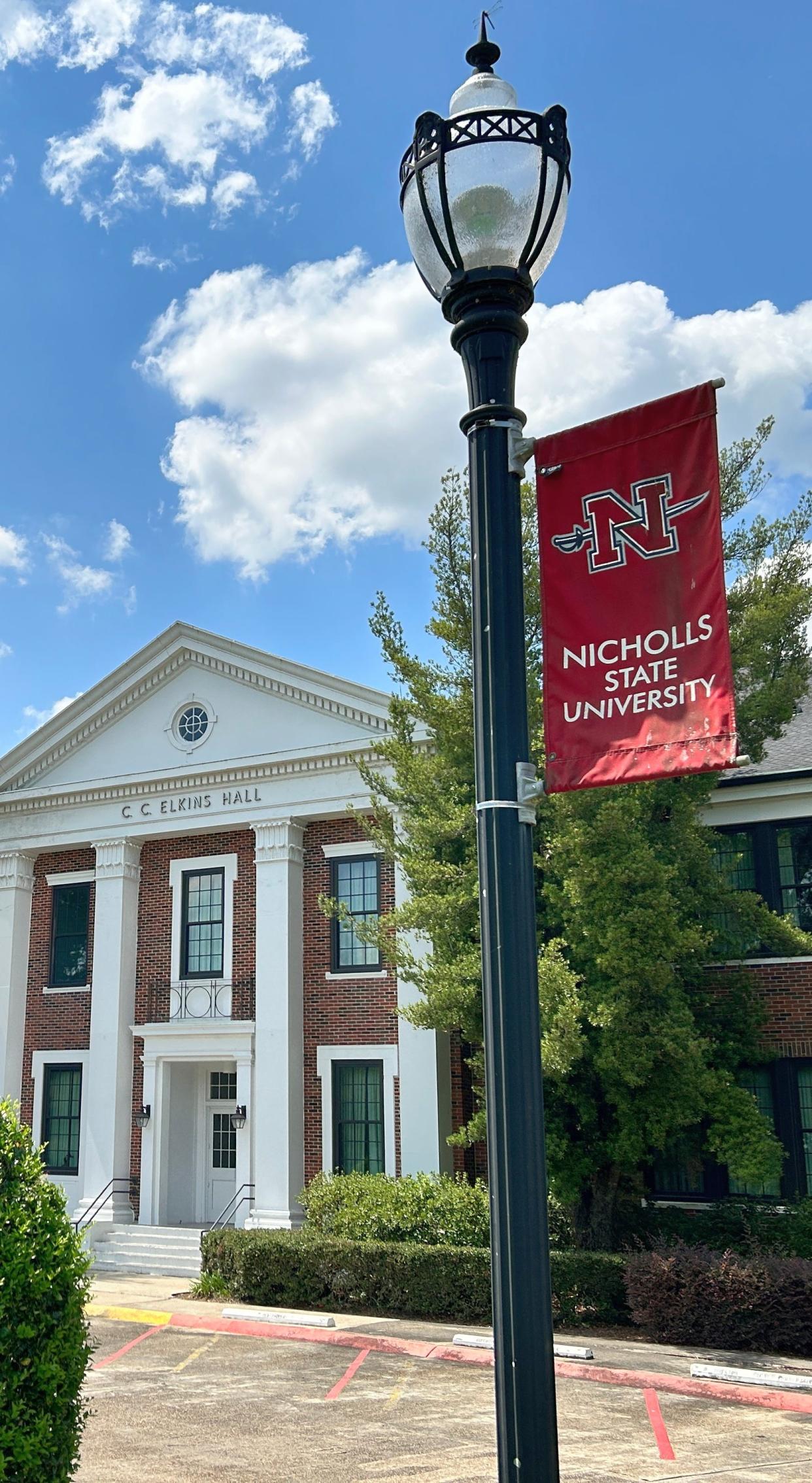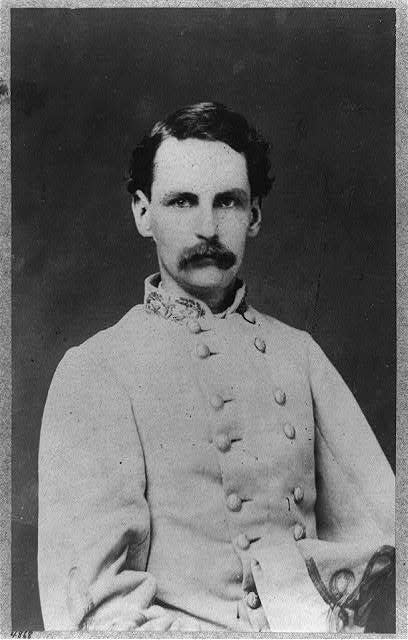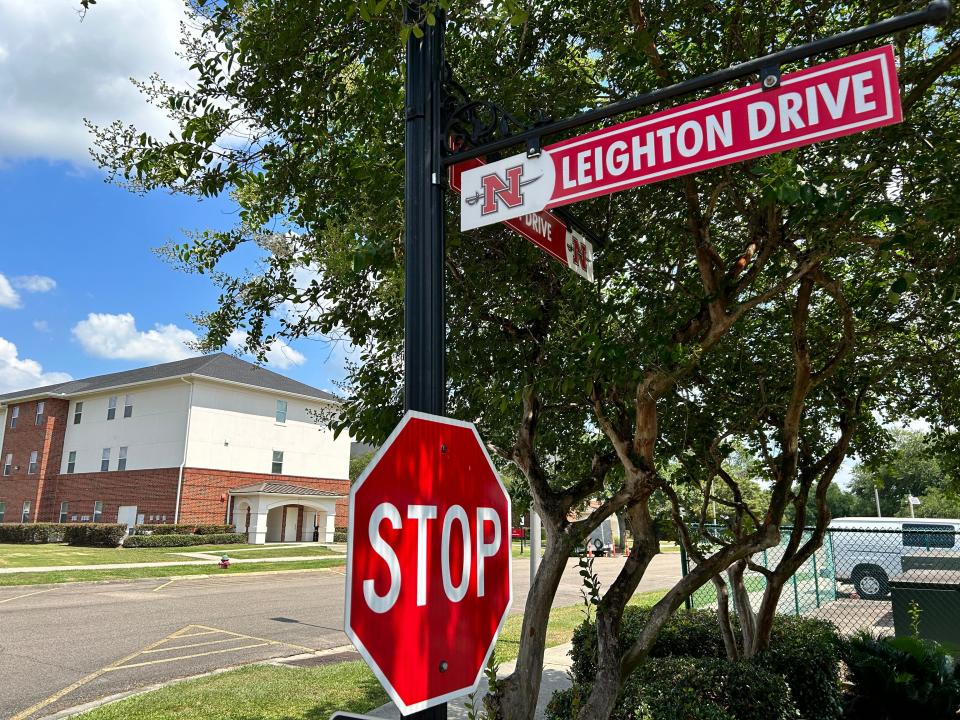While change underway, Nicholls State University's name a reminder of Confederate past

Of all the local institutions named for people with histories of racism and white supremacy, none looms so large — figuratively and literally — as Nicholls State University.
Its namesake, Gov. Francis Redding Tillou Nicholls, an Ascension Parish native, would be amazed at the turns the Thibodaux school has taken, presenting courses that in his lifetime would have been unimaginable in their complexity and modern relevance.
He would also likely be astounded by the demographics for this year’s spring semester, with 65% of its nearly 6,000 students female and 16% Black.
Various voices have questioned why the university would continue with the name of a Confederate general as its brand. Some note that as governor, Nicholls appointed two members of the feared White League, a terrorist white-supremacist group similar to the Ku Klux Klan, to the state’s Supreme Court. Slaves worked the sugar cane fields on Nicholls' Ridgefield Plantation in Thibodaux, but succession records attribute the enslaved people's ownership to his wife.
Nicholls served as governor from 1876 — the last year of Union Army occupation under Reconstruction — to 1880 and again from 1888 to 1892.
“A conservative Democrat who looked at the antebellum period as a golden age in Louisiana,” Nicholls “embodied the ‘Bourbon’ or planter approach to less government-low taxes, few official services and little involvement by blacks in the political processes,” according to a bio on the Louisiana Secretary of State’s Office website.
Nicholls' white-supremacist legacy

In New Orleans, decades of opposition by Black students and others helped lead officials in the 1990s to rename Francis T. Nicholls High School to Frederick A. Douglass High.
Last year, an advisory commission appointed by the New Orleans City Council to research and recommend changes to streets named after white supremacists included Gov. Nicholls on a list of streets it says should be renamed. The council has yet to take action.
In its report, the committee notes that Nicholls oversaw an end to Reconstruction in Louisiana, continuation of the convict-leasing program for state prisons and the disenfranchisement of Black voters. As governor and later as the Louisiana Supreme Court’s chief justice, Nicholls helped embed and perpetuate the “separate-but-equal” system of state-enforced racial segregation that persisted in Louisiana and throughout the South well into the 20th century.
Confederate Reckoning: Across the US, universities grapple with past ties to slavery and segregation and threads that remain today
His history is also mired in complexity. As governor, he fought state corruption, helping to abolish the notorious Louisiana lottery. Nicholls chaired the Louisiana Constitutional Convention of 1879, which among other things saw Baton Rouge reinstated as the state capital.
Though Nicholls’ racial views were certainly less than enlightened, local historian Denis Gaubert notes that his faction of the Democratic Party was more tolerant of civil rights for Black people in the 1870s than were others.
The complexities continue, however. As governor in the year 1891, Nicholls was petitioned to provide assistance to the Italian population of New Orleans due to tensions there. The governor chose not to intervene. Shortly thereafter, 11 Italians were lynched in the city.
'It was not good for us'
Burnell Tolbert, president of the Lafourche Parish NAACP, is among local Black leaders who is hard-pressed to appreciate why the region’s flagship educational institution bears the name of a man who, as a Confederate officer, was a traitor to the U.S. and felt so strongly about slavery as to lose an arm, a leg and an eye in battle for it. It is well documented that Nicholls was no friend to Black people in the post-Reconstruction years, when viciously racist elements had free rein to terrorize Black people in many Louisiana communities.
“A lot of people like this, we find out about the history, and it was not good for us,” Tolbert said, maintaining that his reaction to such matters is anything but knee-jerk and that he carefully weighs his opinions before sharing them. “I am not saying statues should be burned up or thrown away. With those we could get a building, a place where you could put them inside, where people could talk and learn about the history. But a school? A university? That’s a different matter.”
Keeping a name such as that of Nicholls in a place of honor, Tolbert said, has real-world relevance today.
“Some people still believe and feel the way these people felt and believed,” he said.
Change underway

Some change has come to Nicholls, helped along greatly by the school’s NAACP chapter and its Black Student Union, university President Jay Clune said.
“Many of these Black organizations are the most active on our campus,” Clune said. “They often have the most feedback, the most questions, and they’re the most engaged. So I’ve always gotten a tremendous amount from my relationship with these organizations.”
Dialogue on campus place-names has resulted in changes of which Nicholls can boast, Clune and students involved say.
The university is changing campus street names, named for Louisiana plantations years ago, including Rienzi, Leighton, Acadia, Ellendale and Madewood. In 2004, Nicholls stopped using a Confederate-looking caricature named "Tillou" as a mascot and replaced it in 2009 with a less offensive and updated “colonel.”
Earlier: Nicholls president explains decision to remove racially charged names from campus
“We’re finalizing the four other streets that the university controls, the cross streets that are on campus,” Clune said, noting that some changes are being delayed as the university coordinates with Lafourche Parish’s 911 system.
Another change involves two campus buildings, Beauregard Hall and Polk halls — named for Confederate generals P.G.T. Beauregard and Leonidas Polk.
“Those individuals have no ties to Nicholls State University,” Clune said. “As a temporary fix, we replaced those names with the function of the building or the college living in the building.”
'Transcended by the brand'
For now, Beauregard is the College of Sciences and Technology Building. Polk is the College of Education and Behavioral Sciences Building. The school is formulating permanent name changes to those buildings, Clune said, in honor of “individuals we feel contributed greatly to the history of Nicholls itself.”
Some students and alumni — though not a majority — still harbor hope that the school will lose the name it has borne since 1948, though there is not a strong likelihood of that occurring.
“In our case, as in many cases around the country, the name of the individual has been transcended by the brand,” Clune said. “When people think about Nicholls, they are thinking about the university on the bayou that served generations of students. … Our students and our community recognize the value of their degrees, the value of their education and the value of their institution. It’s all closely related to the Nicholls brand, and it would not be in their best interest to change the brand.”
University names set in state law
Clune’s response appears to be shared by University of Louisiana System officials, President Jim Henderson in particular.
“Over the past several years, we have seen numerous examples of buildings, streets and even departments within colleges and universities change, but not the universities themselves,” Henderson wrote in response to an email query. “Over the decades, the names of institutions are far more associated with the works of their alumni and their impacts on communities rather than their namesakes.
“Nicholls State University has been the access point to higher education for hundreds of thousands who have defined the institution’s name through their service as community leaders, nurses, teachers, chefs, business executives, lawyers, physicians, and contributors to the arts.”
The names of universities are set in state law, Henderson added.
“The process for changing those names,” he said, “includes approval of the Board of Regents and both houses of the Legislature.
Next in the series: H.L. Bourgeois High School in Gray. John Kelly DeSantis is a freelance journalist and former reporter for the Houma Courier and Thibodaux Daily Comet.
This article originally appeared on The Courier: Nicholls drops some Confederate references but keeps namesake

